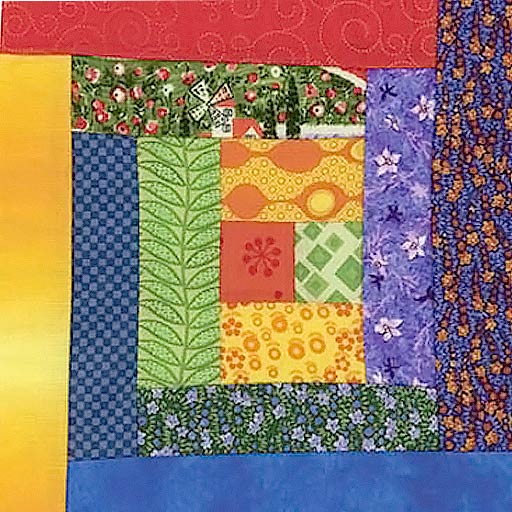Q: Do I show through my way of living that love of God includes affirming the equality of all people, treating others with dignity and respect, and seeking to recognize and address that of God in every person?
PYM Faith and Practice, 2002
Any of us, at any time, may experience a challenge that means we need adaptations to access places, activities, and community that are important to our lives. We are all in some way differently-abled. For some, needs differ only slightly or temporarily from the mainstream, others face lifelong challenges. Creating an inclusive environment supports Friends’ Testimony of Equality and enriches the spiritual community by allowing us to experience the rich and beautiful diversity of humankind. How can a faith community create an environment where everyone fits, all are welcomed warmly, and each person’s needs are considered?
When considering accessibility and community, try to avoid assumptions and always ask a person what they need. Many spiritual groups are eager to address building accessibility, and this is important. (It is difficult to attend an event where one cannot access the bathroom) However, inclusiveness requires sound communication and a welcoming attitude in addition to physical accessibility. Following are some ideas gathered from various Quaker Meeting’s reponses to a Philadelphia Yearly Meeting Care and Aging Survey conducted in 2009 and also from Grounded in God, Care and Nurture in Friends Meetings, edited by Pat McBee. In addition, you may want to contact your regional faith community office, such as your Yearly Meeting, or a local advocacy group for resources and support.
- Nothing About Me Without Me: always ask people what they need, and how the community can be welcoming and accommodating.
- Make sure you address a variety of barriers: architecture and communication is accessible, and that your attitude is welcoming.
- Maintain awareness of local resources, call on them or your regional faith organization (Yearly Meeting for Friends, Area Agency on Aging, advocacy groups) for help.
- Regularly make any resources known, i.e. financial assistance that is available (funds available through your faith group.)
- Announce needs for rides, visits, or other support after worship, during events, through phone committee or e-mail lists.
- Education for the community, on sensitivity and related to specific challenges
- Maintain contact information for family members or close friends for people choose to share this information. This helps in the event of a crisis or if the group is unable to contact someone.
- Support caregivers—Clearness Committees and spiritual care as well as practical support such as cooking, cleaning, visits, transportation
- Provide opportunities for service to the community—a homebound person may be able to serve on the phone committee, for example, or ask homebound members to mentor new or younger attenders
- Establish a “buddy system” for people who live alone
- Communicate with people who are unable to attend worship or committee meetings through newsletters, phone calls, website. Web blogs, e-mail, home visits, send photographs or letters.
- Assess why your members can’t attend. Are people truly homebound, or is it your environment shutting them out?
- Do you need to work on the environment, communication, or attitudes so everyone is welcomed and included?
“The test of true ‘community’ is not its sighs of pity for its vulnerable citizens, but its acts of acceptance and inclusion.”
Christina Hurr, Superintendent for the Butler County Board of Mental Retardation and Developmental Disabilities, Ohio
“When we learn to be inclusive, we can be a world of shalem, or wholeness, and create a world of shalom, which is peace.”
Rabbi Ted Riter, Temple Adat Elohim, California
“A community that excludes even one of its members is no community at all.”
Dan Wilkins
“You should include everybody, that’s how you stop bullying.”
Buffo, World’s Strongest Clown
Download this article in pamphlet form
LINKS TO MORE INFORMATION: Click on the blue text below to be directed to outside websites that offer additional information on this topic. Articles from this site will open in the same browser window/tab. Articles from other websites will open in a new window; when you are done, simply click out of that window and you will be back on this site.
More articles on this website:
Role of the Spiritual Community in Care
Spiritual Approach to Dementia Care
Sources/Further Reading:
That All May Worship – An Interfaith Welcome to People with Disabilities, 2005, National Organization on Disability, Washington, D.C.
Erik Carter, Including People with Disabilities in Faith Communities, 2007, Paul Brookes Publishing, Baltimore, Maryland
Various Meeting’s reponses to Philadelphia Yearly Meeting Care and Aging Survey, 2009.
Quotes from Everyone Is Included

